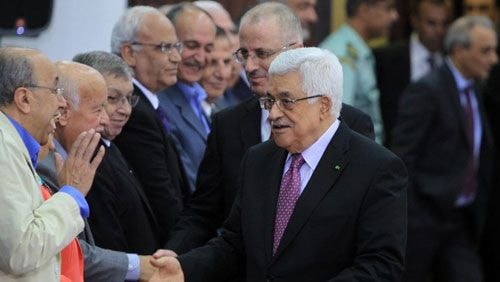President Mahmoud Abbas in trouble?
(Baonghean) - One year after the establishment of the national unity government with the participation of the Fatah Party and the Hamas Islamic Movement, the Palestinian people hope to live in peace, because everyone has long known that the Hamas Islamic Movement is the biggest obstacle in the Middle East peace process. However, on June 17, the national unity government of Prime Minister Rami Hamdalla submitted his resignation and it was accepted. This also means that the peace plan in the Gaza Strip that President Mahmoud Abbas built and pursued will face many difficulties...
Mahmoud Abbas, commonly known as Abu Mazen, was born in Safed, in the British Mandate of Palestine (a form of colonial administration after World War I), on March 26, 1935. Mahmoud Abbas and his family fled to Syria during the 1948 Israeli occupation and returned to Palestine in 1995. He is one of the few surviving founders of the Fatah movement, the largest political group within the PLO. During his exile in Qatar in the late 1950s, he rallied Palestinians to fight for an independent Palestinian state. All of them later became key figures in the PLO.
Compared to his fellow fighters, Mahmoud Abbas emerged as a high-class intellectual. He studied law at the University of Damascus (1985) before successfully defending his doctoral thesis in history at the Moscow Oriental Institute (1982) and was the author of several valuable historical research books on his homeland and other topics. Among them was "The Secret Relationship Between Nazism and Zionism". Immediately after the publication of this topic, Jewish groups harshly criticized his doctorate.
 |
| President M. Abbas (right) and Prime Minister R. Hamdallah met with new Palestinian cabinet members 1 year ago. |
Mahmoud Abbas built a powerful network of connections with Arab leaders and influential intelligence chiefs. This enabled him to become a very successful fundraiser for the PLO and to play a key role in internal security from the early 1970s. He was then appointed head of the PLO's internal and external relations department in 1980. He was instrumental in initiating dialogue with the peace movements and the Jewish left in the 1970s, and he also played a role in maintaining this relationship during the difficult years before the start of the Israeli-Palestinian peace talks. One of Mahmoud Abbas's major political achievements before becoming President was his recognition as the architect of the Oslo peace process. He accompanied Chairman Yasser Arafat to the White House in 1993 to sign the Oslo Accords.
In April 2003, Mahmoud Abbas was elected as the first Prime Minister of the Palestinian National Authority but had to resign less than 4 months in office due to disagreements over control of Palestinian security forces and also to resolve the deadlock of the Middle East peace roadmap; in 2004 he was elected Chairman of the Executive Committee of the Palestine Liberation Organization and in 2005 he was elected Chairman of the Palestinian National Authority. Also in 2005, in the official presidential election after the controversial "departure" of President Yasser Arafat in Paris (France), Mahmoud Abbas was elected president and currently holds the highest position in Palestine.
Returning to the internal political crisis, in fact, both Fatah and Hamas are fighting for a Palestinian state independent of Israel, however, differences in political views, ideology and ways of fighting Israel have prevented the two forces in power to govern the two Palestinian territories from finding a common voice for many years. Fatah's consistent viewpoint is moderate, secular and pursues the path of diplomatic negotiations with Israel, while Hamas is extreme and resolutely does not recognize the existence of the Jewish government. And with Hamas's extremism and violence, the Tel Aviv government has repeatedly launched attacks on the Gaza Strip, including a nearly month-long attack that killed thousands of people, turning this place into a ruin, desolate, which, according to calculations, will take decades and tens of billions of dollars to restore.
The only good news and also the hope of an independent state for the international community and the Palestinian people themselves is that after the war, both Fatah and Hamas put aside their seemingly unbridgeable differences to sit down for negotiations. Therefore, Hamas's willingness to give up its control of Gaza and follow the leadership of President Mahmoud Abbas's government, under the banner of the Palestine Liberation Organization (PLO), is not only an important change within Hamas but also a major change in the political situation in Palestine.
However, before we could celebrate the unfinished Middle East peace process, on June 17, after 1 year of establishment, the National Unity Government with the participation of Hamas collapsed. And according to the latest information, it is not known when Prime Minister Rami Hamdalla stands up to form a new government established by President Mahmoud Abbas, will Hamas be allowed to participate or not? But what people already know is that Hamas has strongly opposed this decision. And in the case that the new government does not have the presence of Hamas, it is likely that President Mahmoud Abbas's Peace Plan with a two-state solution coexisting in parallel - Israel and Palestine will fall into a new cycle of deadlock.
South Scene






